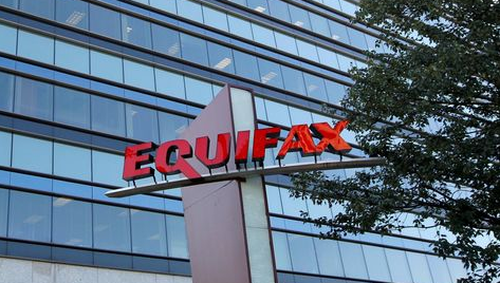Equifax Sent Lenders Wrong Info On Millions Of Consumers, Causing Higher Rates, Denials
Credit company Equifax provided inaccurate credit scores for millions of US consumers to banks and nonbank lenders during a three-week period between mid-March and early April, the Wall Street Journal reports, citing bank executives and other familiar with the errors.
The incorrect scores – off sometimes by 20 points in either direction, affected people applying for auto loans, mortgages and credit cards to banks including JPMorgan Chase, Wells Fargo and Ally Financial. The scores were enough to alter the interest rates consumers were offered, or to cause applications to get rejected .
Equifax has blamed a “technology coding issue,” which they say they’ve fixed, and added that the information didn’t alter the information in consumers’ credit reports.
“We have determined that there was no shift in the vast majority of scores during the three-week timeframe of the issue,” said Equifax president of US Information Solutions, Sid Singh. “For those consumers that did experience a score shift, initial analysis indicates that only a small number of them may have received a different credit decision.”
Equifax maintains credit reports on more than 200 million U.S. consumers and sells them to lenders. The information in these files—including whether consumers are applying for debt, the types of accounts they have and whether they have a history of paying on time—determines consumers’ credit scores. Credit scores are among a number of factors lenders consider when making loan decisions.
The glitch is another setback for Equifax, which fell victim to a hack in 2017 that exposed the sensitive personal information of nearly 150 million Americans. -WSJ
In late May, trade publication National Mortgage Professional reported on the glitch, saying that Equifax had notified lenders of their findings. The next month, Equifax CEO Mark Begor publicly acknowledged the errors, blaming a coding issue that affected “legacy applications that resulted in some scores going out that had incorrect data,” and that the company had fixed the problem.
“The impact is going to be quite small,” said Begor, “not something that’s meaningful to Equifax.”
That said, the Journal reports that at one big bank, 18% of applicants during the three-week period had incorrect scores, with an average swing of 8 points. The percentage of scores provided to lenders varied.
One auto lender was told by Equifax that around 10% of applicants during the affected period had scores that were wrong. Of those, several thousand saw a charge of 25 points or more on their credit score. In a small number of cases, some applicants went from having no score at all to a score in the 700s, or vice versa.
Approximately 2.5 million credit scores were sought during the period in question, according to the Journal, citing an industry estimate.
Tyler Durden
Tue, 08/02/2022 – 20:25


Recent Comments